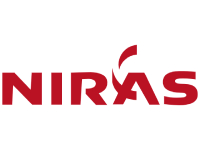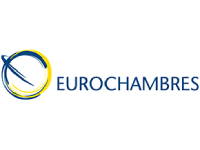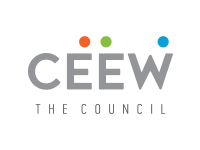About the EU-India CECP project
This
dashboard has been developed under the India-EU Clean Energy and Climate
Partnership (CECP) project, which is one of the main projects implementing the
Clean Energy and Climate Partnership. It started in December 2018. It is
financed by the Partnership Instrument of the European Union and managed by the
Delegation of the European Union to India.
PricewaterhouseCoopers
Private Limited (PwC India) is the implementing partner for this project,
together with NIRAS A/S, EUROCHAMBRES and the Council on Energy, Environment
and Water (CEEW). This website has been developed under the CECP project.
The
project will address issues like energy efficiency in buildings (Energy
Conservation Building Code, nearly zero energy buildings, smart readiness
indicators and cooling) and industry, development and deployment of renewable
energy, including solar and offshore wind, smart grid applications, energy
storage, energy recovery from waste, increasing access to clean energy, climate
mitigation and adaptation initiatives, accountability framework for mitigation,
sustainable patterns of consumption and production, sustainable financing of
clean energy, energy efficiency and climate action.
The
project started in December 2018 and will end in December 2021.
Our objective
The overall objective of the project is to reinforce cooperation between EU and India on clean energy and climate change with a view to ensure a secure, clean, affordable and reliable energy supply for all and to progress in the implementation of the Paris Agreement. The overall objective is envisaged to be achieved by focusing on Energy Efficiency (EE), Renewable Energy (RE) and Climate Change (CC). The overview of main activities to be carried out are:
·
Policy Dialogue: Exchange of experiences, best practices & views (webinars, Workshops, study tours, field visits, demo projects)
·
Cooperation: Organization of key EU-India events, research and Innovation, development & implementation of technical solutions, financial investment in renewable energy and energy efficiency and Business to business engagement
The proposed assignment has the specific objective to exchange views on policy and regulatory approaches, governance, best practices, business solutions, market access and research and innovation opportunities in the field of RE, EE and CC in India.
Implementing partners
PricewaterhouseCoopers
Private Limited (PwC India) is the implementing partner for this project,
together with NIRAS A/S, EUROCHAMBRES and Council on Energy, Environment and
Water (CEEW).
PwC India

PwC is the oldest and largest professional services firm, with a presence of over 130 years. The firm has leveraged the huge international network and experience to provide solutions to challenges associated with the evolving trend of globalization. With a global outlook and local knowledge of culture, laws and business needs, PwC has been able to help clients in India make the most of the changing market scenario.
NIRAS A/S

Niras provides consultancy in a variety of fields such as construction and infrastructure, public utilities, environmental and natural resources, climate change and energy, planning, and development consulting.
Eurochambres

EUROCHAMBRES
represents over 20 million businesses in Europe through 46 members (42 national
associations of chambers of commerce and industry and two transnational chamber
organizations and a European network of 1700 regional and local chambers. More
than 93% of these businesses are small and medium sized enterprises
(SMEs).
CEEW

The
Council on Energy, Environment and Water (CEEW) is a not-for-profit policy
research institutions. CEEW uses data, integrated analysis, and outreach to
explain – and change – the use, reuse, and misuse of resources.
The dashboard attempts to provide an overview of the European Union (EU) and EU Member States activities, projects and programmes in India in the area of clean energy and climate action. The content of the dashboard is non-exhaustive. Efforts have been made to ensure that the information is accurate and up to date, but we cannot accept any responsibility for its accuracy, completeness, or adequacy. In case of further interest, you are kindly advised to directly contact the people responsible for the specific certain activity, project or programme.